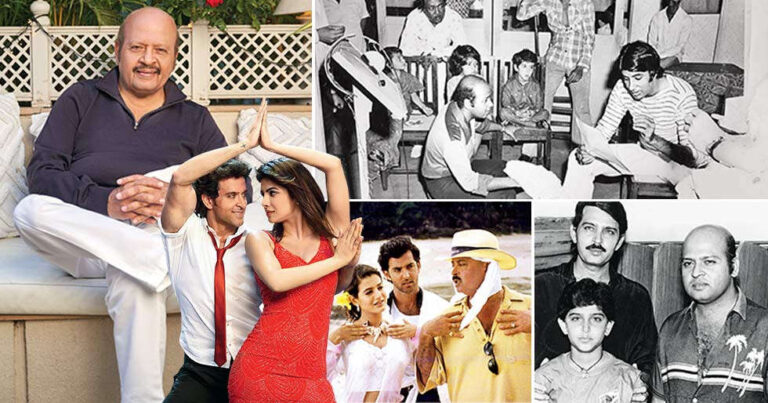Rajesh Roshan completes the formidable quartet of one among Bollywood’s most celebrated households. The soft-spoken music director lends an eloquent voice to The Roshans, a documentary revisiting the trials and triumphs of three generations. legendary musician Roshan Lal Nagrath, sons Rakesh and Rajesh Roshan, and grandson Hrithik Roshan. Although recognized for scoring chartbusters in brother Rakesh Roshan’s movies like Kaamchor, Khudgarz, Khoon Bhari Maang, Kishen Kanhaiya, Karan Arjun, and nephew Hrithik’s Kaho Naa… Pyaar Hai to Krrish 3 … Rajesh Roshan’s musical legacy extends past. Debuting within the Seventies alongside maestros like Kalyanji-Anandji, R.D.
Burman and Laxmikant-Pyarelal, he first made an impression with Aa ri aa jaa from Kunwara Baap. Julie cemented his popularity as a melodist, with Dil kya kare by Kishore Kumar turning into a radio staple. His evergreen compositions embrace Pal bhar mein yeh kya hogaya (Swami), Lata Mangeshkar’s Kya mausam hai (Doosra Aadmi), Thoda hai thode ki zaroorat hai (Khatta Meetha), Jab koi baat bigad jaaye (Jurm) and Kisi nazar ko tera intezaar aaj bhi hai (Aitbaar).
“When individuals from all walks of life, a surgeon, an income-tax officer, recall even lesser-known songs, it makes me realise the price of my music,” Rajesh displays. “Whereas Mungada (Inkaar) was a success, many keep in mind the duet Chodho yeh nigahon ka ishara (Kishore Kumar–Asha Bhosle). A well known restaurateur even willed that Tere jaisa yaar kahan (Yaarana) be performed at his chautha. That’s deeply shifting.” He smiles, “To know my music has touched hundreds of thousands and endured throughout generations is really gratifying.”
Music Was A Means of Life
Being the son of the legendary Roshan saab, music was woven into our lives. I’ve been lucky to work together with artistes of pure calibre. I recall watching Sahir Ludhianvi saab and Papa create the rating for Chitralekha (1964). Mohammed Rafi saab’s Mann re… from the movie carries such depth that even educated singers falter. I consider I may do justice to Papa’s compositions as a result of being consistently round him helped me internalise their emotion.
Life got here full circle when, many years later, Rafi saab sang the antara Yeh mastiyaan, yeh bahar… for Kya mausam hai (Doosra Aadmi, 1978), a duet with Kishore Kumar and Lata Mangeshkar, recorded dwell with 80 musicians. Lataji’s voice all the time captivated me. I’d mimic her harkats, singing alongside to her data on the radiogram. One favorite was Nigahein kyun bhatakti hai (Baharon Ki Manzil, 1968). One other profound affect was maestro Mehdi Hasan saab. His ghazal Gulon mein rang bhare sounds easy however is intricately layered. Singing him requires tuning into his serenity, you may virtually really feel a delicate spring breeze in his calm supply. His Mujhe tum nazar se gira toh rahe ho is so nuanced that even seasoned singers wrestle. Lately, I watched Rekhaji try it on a actuality present. Given its complexity, I listened carefully and was pleasantly shocked at how nicely she captured its nuances.
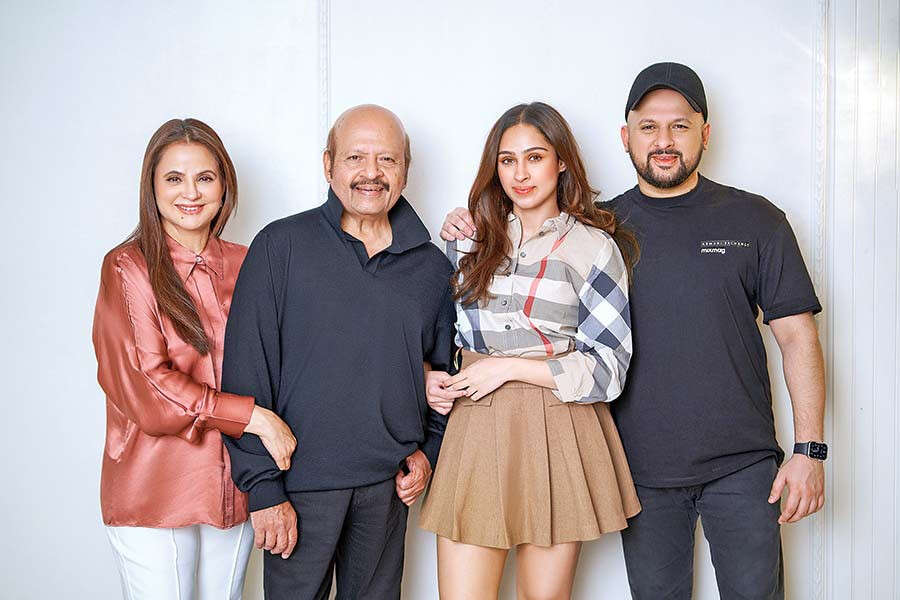
Mehmood Bhai Had A High-quality Ear For Music
I used to be in Customary Eight when Papa handed away in 1967. We confronted troublesome instances. My mom, Ira Roshan, an expert singer, inspired me to pursue music significantly. She organized for me to help Laxmikant-Pyarelal and ensured I learnt mild classical vocal music below Ustad Faiyyaz Ahmed Khan saab. Mehmood bhai gave me my first break with Kunwara Baap (1974). He had a refined ear for music. When he heard the tune of the lullaby Aari aaja nindiya with my dummy lyrics, he turned emotional and promised I might rating all his movies. He stored his phrase. Even 50 years later, individuals are moved by the Kishoreda-Lataji rendition. Actually, Saj rahi gali meri maa, penned by Majrooh Sultanpuri, was the primary track we recorded for Kunwara Baap. Rafi saab’s heartfelt supply gave it a brand new depth. Sung by eunuchs, it turned a shagun, a blessing for me. Kunwara Baap gave me the arrogance to step into the business as a full-fledged music director.
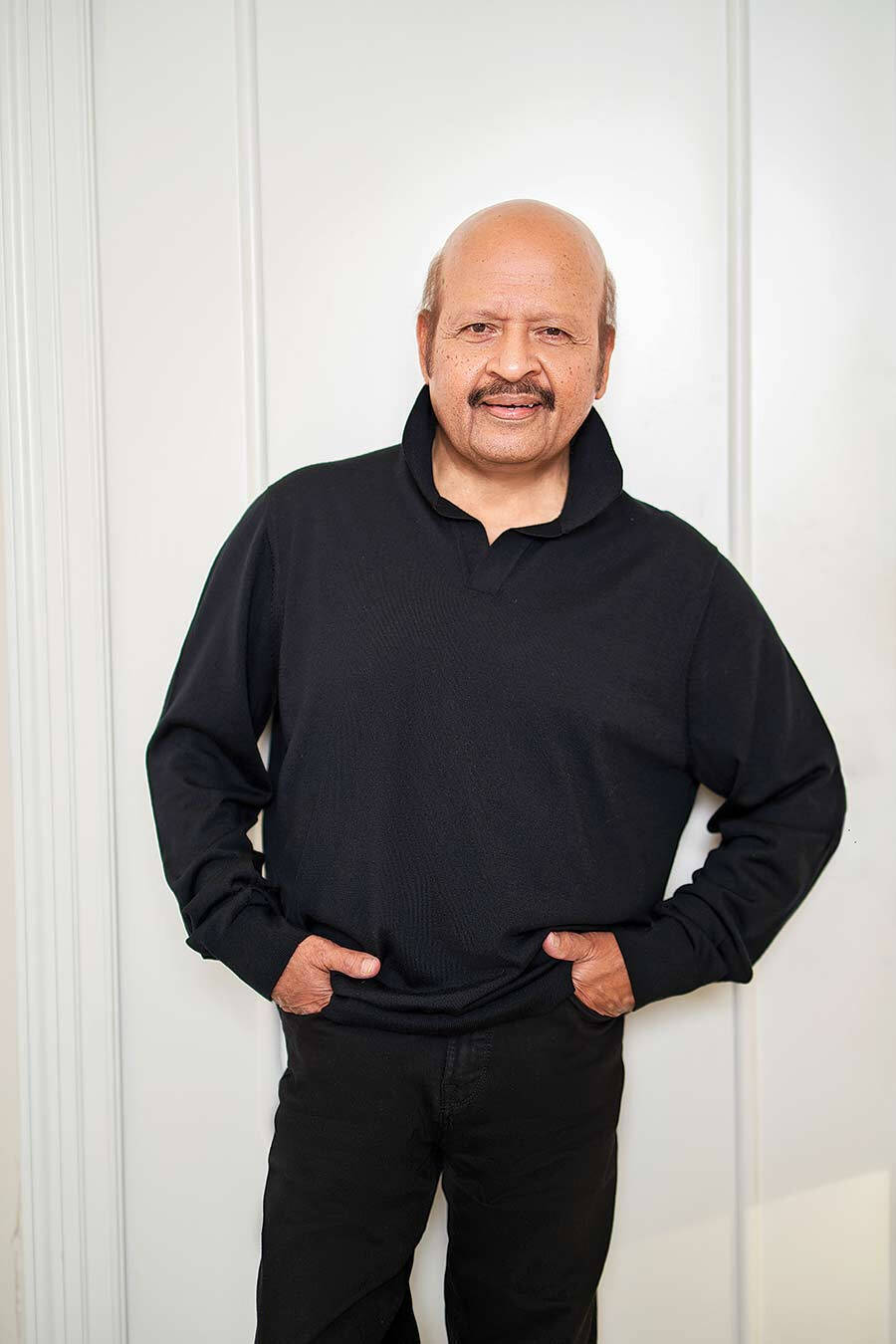
Life Modified After Julie
Julie (1975), B. Nagi Reddy’s remake of the Malayalam movie Chattakkari (1974), reworked my life in a single day. I used to be up towards legends, Kalyanji-Anandji with their classical-meets-massy sound, L-P’s melodic finesse and R.D. Burman’s dynamic pop rhythms. My power lay in mild, Western-inspired romantic tunes, making Julie the proper match. Dil kya kare turned a nationwide sensation, essentially the most remixed of my songs, although nobody may match Kishoreda’s tender, passionate unique. Julie… I really like you emerged as a romantic anthem, its English phrase amplifying its appeal. My coronary heart is thrashing, sung flawlessly by Preeti Sagar, was Bollywood’s first English composition and holds its personal towards world requirements. The waltz-like Yeh raatein nayi purani was a private favorite of Lataji, who even referred to as to thank me. Julie’s soundtrack received me the Filmfare Award for Finest Music Director, a uncommon honour contemplating the competitors, L-P for Dulhan, R.D. Burman for Khel Khel Mein and Sholay and Shankar-Jaikishan for Sanyasi.
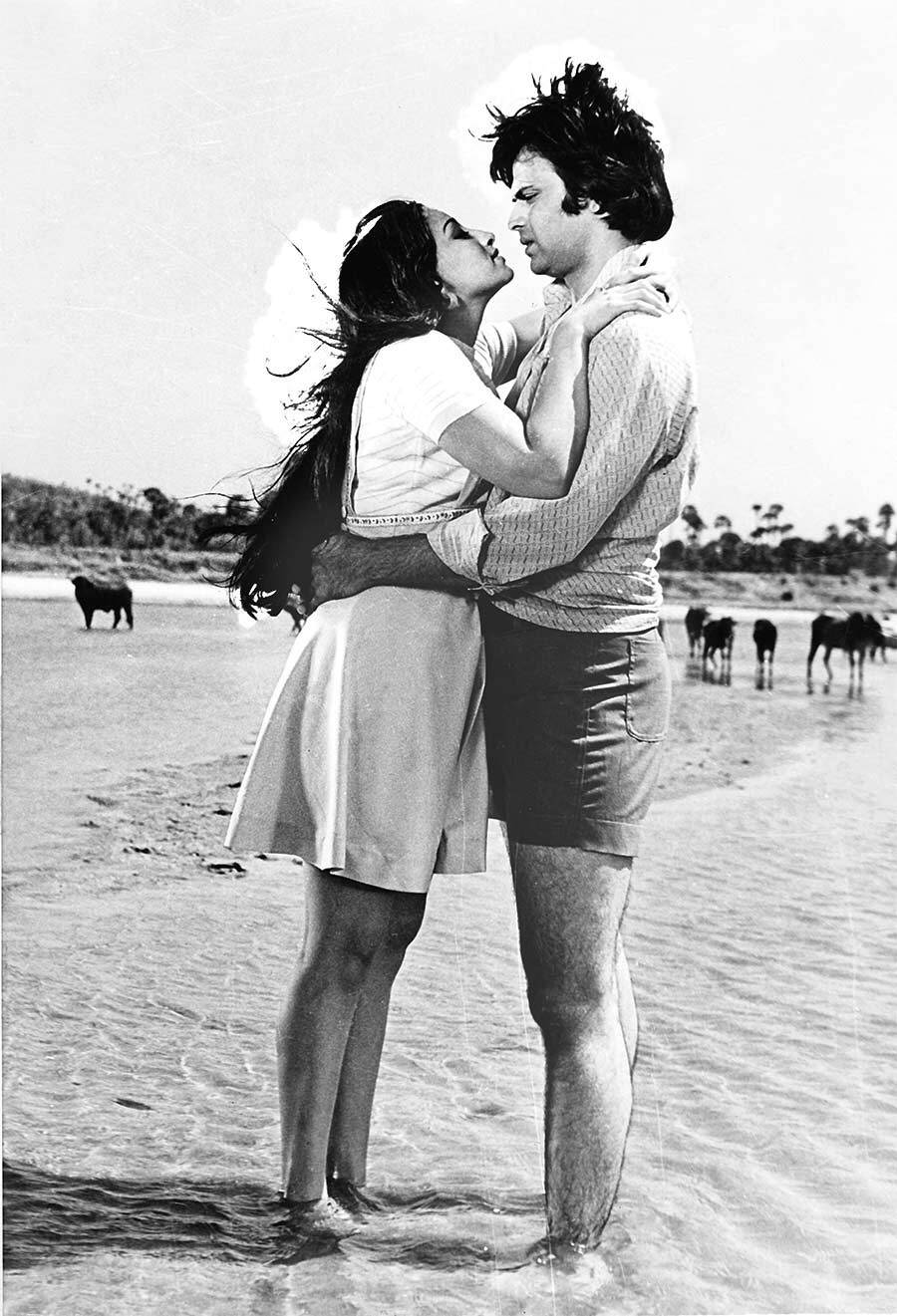
Dev Anand Saab Backed Me
I collaborated with Basu Chatterjee on Khatta Meetha, Priyatama and Swami (all 1977) and later Baton Baton Mein (1979). Basuda would typically say, “You’re my Shankar-Jaikishan.” He didn’t have entry to the maestros, however by means of my shut pal and lyricist Amit Khanna, he discovered me. With God’s grace, I had began delivering hits like them. Amitda additionally launched me to Dev Anand saab. Dev saab spent two to 3 hours with me, sitting on the carpet of his workplace, listening to my compositions. I stored sipping tea and he stored ordering extra. When phrase unfold that he was signing me, rival camps tried to dissuade him. Regardless of the hurdles, he stood agency. “Whether or not Rajesh offers good music or not, I don’t know. However I’ll solely take him,” he insisted. For Des Pardes (1978), and later Lootmaar (1980) and Man Pasand (1980), we recorded India’s first stereophonic songs, every taking two to 3 days to finish. Prices escalated, however when individuals tried to intervene, Dev saab merely stated, “Don’t disturb my music director!” We shared deep mutual respect. Des Pardes established me among the many high music administrators, which led Yash Chopraji to signal me for Doosra Aadmi (1977) and Kaala Patthar (1979). Whereas composing Ek raasta hai zindagi for the latter, lyricist Sahir saab was assured it could succeed. Lataji’s delicate antara, Aisa ghazab mat dhana was the crowning glory. As Papa used to say, “Raag, rasoi, pagdi banat banat ban jaaye”(good music, like nice delicacies or a well-tied turban, simply occurs). Each track has its future. Some fade away, others dwell ceaselessly.
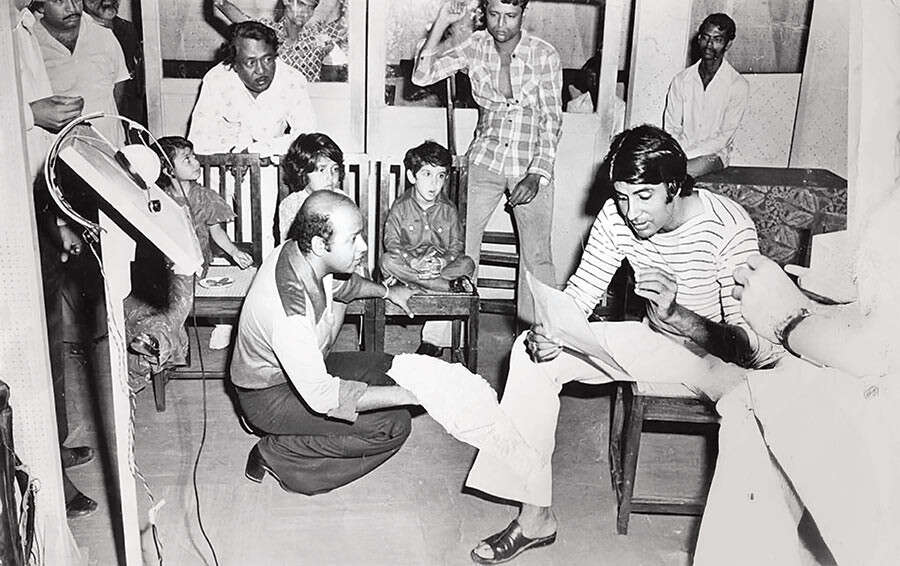
It Was At all times A Give And Take With My Administrators
Working with Amitji (Bachchan) on movies like Mr Natwarlal (1979), Do Aur Do Paanch (1980), Yaarana (1981) and Khud-Daar (1982) was one other inventive excessive. Actually, Amitji even sang Mere paas aao in Mr Natwarlal. The way in which he and Rekhaji moved to Pardesiya was exceptional. They instinctively understood the rhythm and introduced emotion to each beat. Shah Rukh Khan, Salman Khan and Hrithik (Roshan) share that very same instinctive aptitude. Throughout Yaarana, director Rakesh Kumar was not sure methods to picturise the upbeat Saara zamana with Amitji. I advised having him stroll from the inexperienced room to centre-stage with the intro beats. He adopted by means of, and it labored completely. It was all the time a collaborative course of with my administrators. I additionally shared a heat rapport with my singers.
Ashaji (Bhosle), ever jovial and fast with a joke, introduced that infectious power to her songs. Her pub quantity Jab chhaye mera jadoo (Lootmaar) brims along with her vivacious spirit. She and Mukeshji delivered a magical duet Hum dono milke (Tumhari Kassam, 1978). I’ve all the time felt a particular reference to the Mangeshkar household. Who’d have imagined Usha Mangeshkarji’s Mungda (Inkaar, 1977) would change into such an enormous hit? I additionally maintain Suman Kalyanpurji in excessive regard a gifted artiste and a gracious individual. Her duet Teri palkon mein kajal (Jay Vejay, 1977) with Rafi saab stays near my coronary heart. I remorse having recorded along with her solely as soon as.
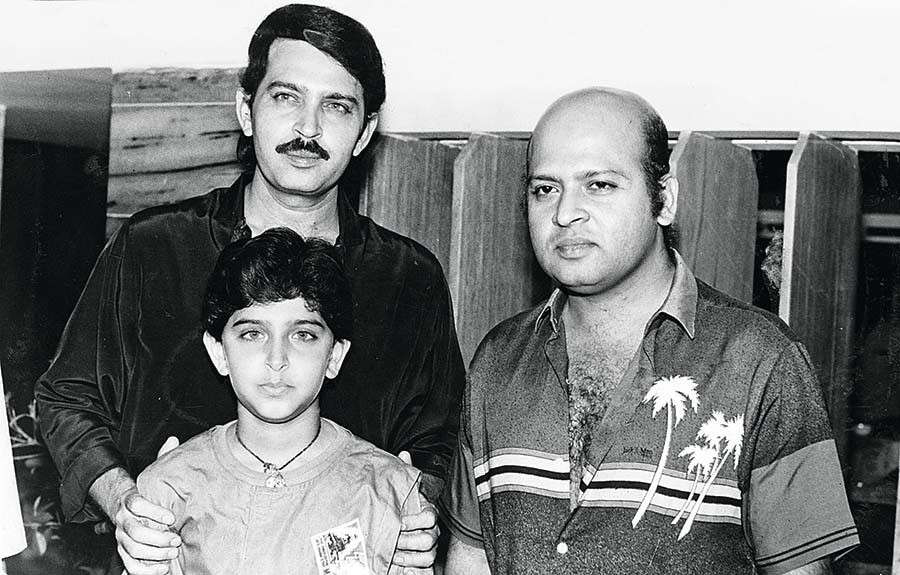
My Brother Rakesh By no means Tried to Overshadow Me
There was a time when my brother Rakesh Roshanji’s movies as an actor and producer weren’t faring nicely. He was disheartened when Kaamchor (1982) underperformed, although the music was a success. Curiously, I wrote the lyrics for Tum se badh kar and Tujh sang preet lagayi. I additionally penned Angrezi mein kehte hain (Khuddaar, 1982) and Tu wada na tod (Dil Tujhko Diya, 1987). My compositions for Mahesh Bhatt’s movies, Kaash (1987), Daddy (1989), and Papa Kehte Hain (1996) have been well-received, although the movies didn’t do nicely commercially. With our manufacturing home Filmkraft struggling, Rakeshji determined to show director.
I supported him totally. That’s how Khudgarz (1987) happened. The music turned a rage. Aap ke aa jaane se nonetheless has Govinda performing it on actuality exhibits and Zindagi ka naam dosti stays timeless. Rakeshji’s directorials like Khoon Bhari Maang (1988), Kishen Kanhaiya (1990), Karan Arjun (1995) have been all superhits and so have been their soundtracks. He by no means tried to overshadow me within the music division. Rakeshji and I didn’t must persuade one another. We understood one another instinctively. We weathered powerful instances collectively… solely to construct an enduring legacy.
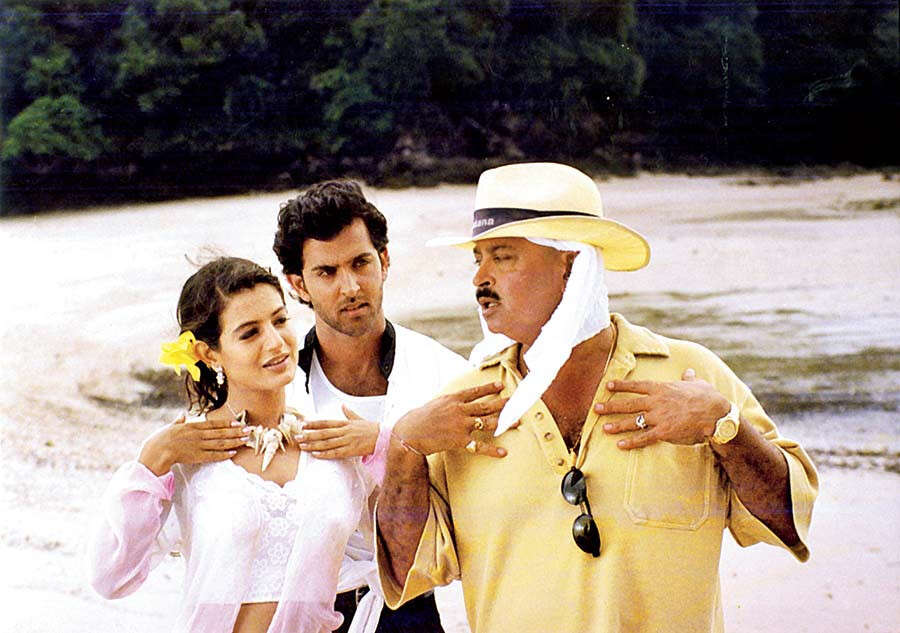
Hrithik Has An Innate Sense Of Music
Hrithik Roshan’s debut Kaho Naa… Pyaar Hai (2000) earned me the Filmfare Finest Music Director Award after 25 years. The songs have been fantastically rendered by the brand new technology of singers, Alka Yagnik, Kumar Sanu and Udit Narayan, all of whom had acquired their early breaks from me. Composing for the sci-fi Koi… Mil Gaya (2003) and the Krrish superhero sequence has been an ongoing inventive journey for us. Being a Roshan, Duggu has an innate sense of music. His sensibilities are fashionable, but he stays hardworking and honest.
Sometimes, he admits when a track’s picturisation didn’t meet its full potential, maybe because of time constraints. Whereas filming Ek pal ka jeena (KNPH), he battled a migraine. The hook step concerned leaping, regardless of the ache, he delivered a stellar efficiency. The track and people steps, turned a phenomenon. Singer Fortunate Ali’s impromptu alaap on the finish gave the western monitor a soulful Sufi contact. As a father, I’m immensely happy with my daughter, Pashmina Roshan, who debuted in Ideas’ Ishq Vishk Rebound final yr.
Her current track Jachdi, a singular mix of garba and Punjabi beats, sung by Ayushmann Khurrana and that includes each of them, was well-received. I am equally comfortable for my son, Eshaan Roshan, who’s efficiently making movies below the HRX Movies banner with Hrithik. And none of this is able to have been doable with out my spouse, Kanchan, my strongest pillar, who has stood by me by means of each section.
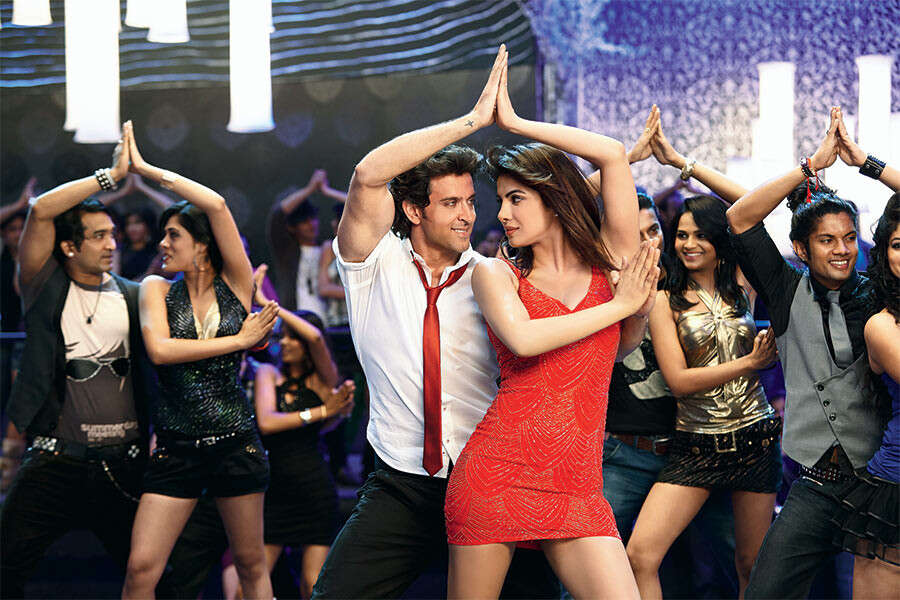
Why Don’t We Worth Our Musicians?
One factor continues to bother me deeply: the dearth of recognition for our musicians. Bollywood composers have been unparalleled. From the ’50s by means of to the ’70s, movies have been carried on the power of their music. The ’70s marked the tip of an period, the final of the true greats. What our music administrators have created is unmatched globally. In Hollywood, even a musician with simply 4 hits earns lifetime royalties. They will afford villas, plane, even personal islands… they’re safe ceaselessly.
However what did our legends obtain? Roshan saab, Bismillah Khan saab, Madan Mohanji, O.P. Nayyarji, Shankar-Jaikishanji… What did they go away behind? No cash, no actual accolades. Even R.D. Burmanji discovered himself out of labor in his ultimate years. These maestros have been consumed by the sheer ardour of creativity. However we, as a society have failed them. They formed the emotional panorama of our lives, the music of our joys, our heartbreaks, our celebrations and farewells. When artistes like Ravi Shankarji or Hari Prasadji (Chaurasia) went overseas, they have been celebrated. But right here, we overlook our personal. Why?
Additionally Learn: Hrithik, Rakesh, Rajesh Roshan pose together at The Roshans’ trailer launch








